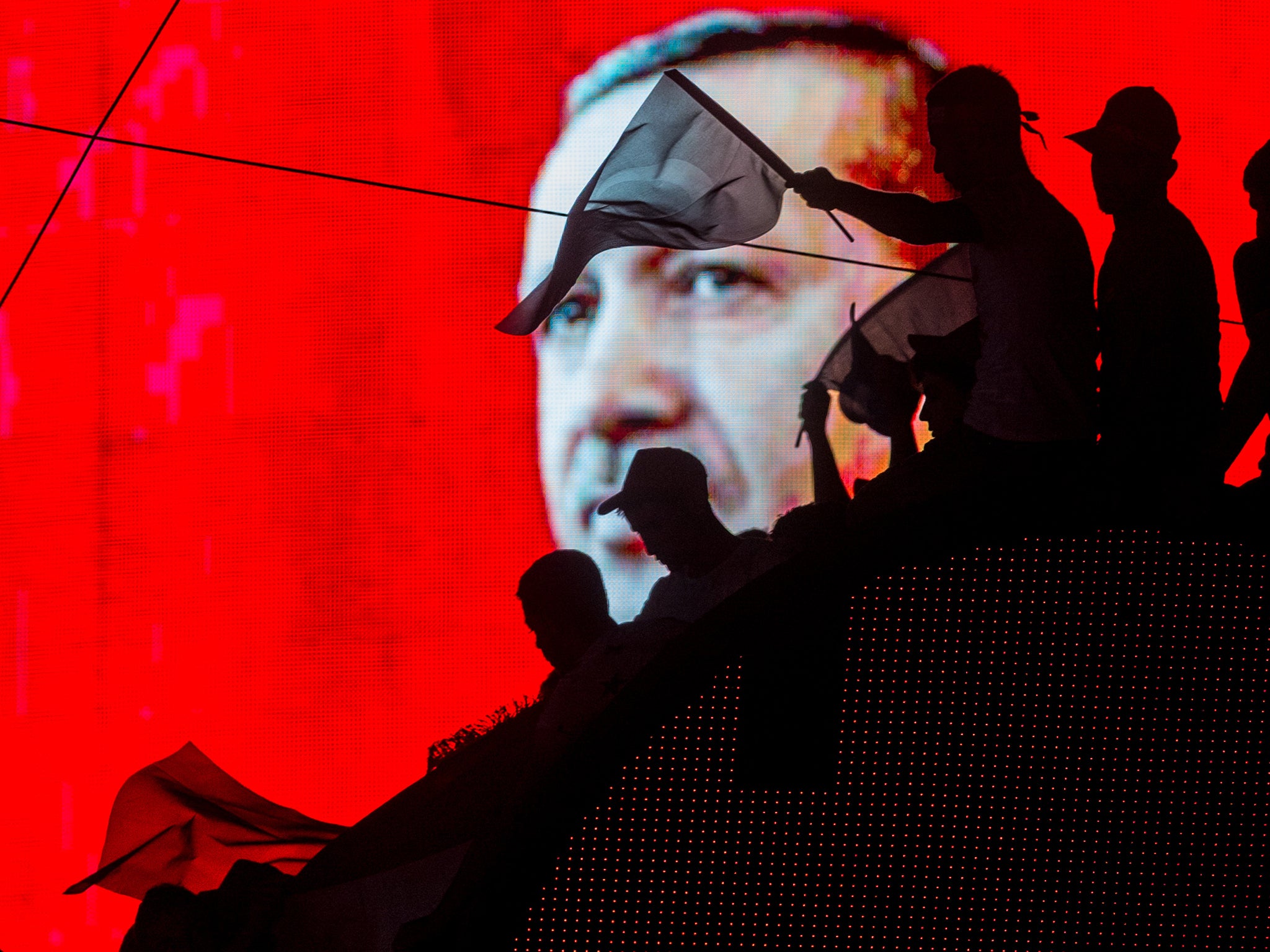Torture has returned to Turkey under Erdogan – and he can't just 'opt out' of his promises on human rights
The European Court of Human Rights has frequently found Turkey to be in breach of the absolute ban on torture, and our clients at Freedom from Torture are living proof that it continues to take place under Erdogan’s government

There is a deafening silence about torture in the international response to the attempted Turkish coup. This will suit President Erdogan.
Even before the events of the last seven days, torture was a regular feature of the government’s approach to managing political dissent. Now more than ever, Erdogan needs to be reminded of his international human rights obligations and the damage he will inflict on Turkey’s future if his crackdown looks like that of his Syrian neighbour Bashar al-Assad.
Turkey is a country with a deeply chequered reputation on human rights – a reputation that is, sadly, not unjustified. Unlike its Middle Eastern neighbours, Turkey is a member of the Council of Europe and is bound by the European Convention of Human Rights. It is also a longstanding signatory to the United Nations Convention Against Torture. So it would be fair to assume that it has been valiantly working to end torture practices. But this is not the case.
The European Court of Human Rights has frequently found Turkey to be in breach of the absolute ban on torture and our clients at Freedom from Torture are living proof that it continues to take place under Erdogan’s government.
Despite Turkey’s announcement that it will “suspend the ECHR”, it is not off the hook. It is not possible, even in a state of emergency, for a party to the convention to ‘opt out’ of the absolute ban on torture – no matter how much President Erdogan wishes differently.
Our specialist clinicians provide therapy and forensically document torture of people who have sought refuge in the UK. Turkey has consistently been one of our top 10 countries of origin for referrals and last year moved up this ignominious league table to number five.
Two months ago, our clinicians raised their concerns with me about the horrific torture they were hearing about and forensically documenting for Turkish survivors this year. Over the last 25 years we have heard and documented harrowing cases of repeated beatings and electrocutions; of the horrific rape and sexual torture endured by men and women in Turkey. All while being interrogated, often about political activity.
These types of torture are well known to have devastating consequences for mental and physical health. Our clients struggle with flashbacks, nightmares and suicidal thoughts.
Many report experiencing torture because of a real or perceived link to Kurdish causes, viewed by elements of the Turkish government as an intense threat to national security. Given the current security crisis we can expect a similarly brutal response. The removal of thousands of judges from their posts is particularly worrying in its potential to remove the opportunity for implementation of already weak protections against torture or guarantees of due process.
In light of this, it is shocking that the joint statement by John Kerry and Francesca Mogherini at this month’s EU Foreign Affairs Council, reminding Turkey of its EU aspirations and Nato commitments, failed to specifically mention the very severe risk of torture and ill treatment of those who are being rounded up. It is also alarming that there has been no action to rescind the highly controversial EU-Turkey refugee deal.
How the government acts in the coming months to bring the coup plotters to justice will be a litmus test of President Erdogan’s commitment to human rights. Of course the government needs to investigate the attempted coup and hold those responsible accountable. But it needs to do so while respecting the rule of law and due process. There is a clear role for the international community in restraining Turkey from repressive acts. As the crisis in Syria demonstrates, torture is a violation of the most basic principles of international law, it is also a disastrous way to try and secure long-term political stability.
Ann Hannah is an International Advocate at Freedom from Torture
Join our commenting forum
Join thought-provoking conversations, follow other Independent readers and see their replies
Comments
Bookmark popover
Removed from bookmarks